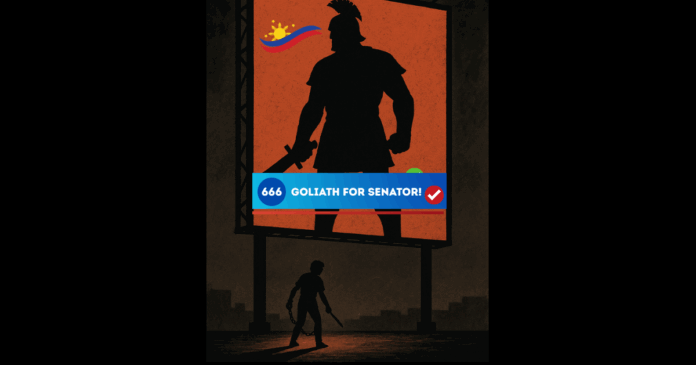Unti- unti na bang nauubusan ang mga Pinoy ng kanilang “pake?”
As the May polls draw closer, and with the constant barrage of tarpaulins, posters, stickers, and cars blaring politicians’ jingles—some of which may or may not even be properly licensed—there is an undercurrent one cannot ignore. Between the slamming forces of kampo ni ganito and kampo ni ganire, somewhere in the cracks are those who seem to have had enough of the system.
These are people who’ve seen the same literal song and dance many times before, yet continue to experience poor governance driven by political inefficacy.
According to a paper by Nicholle Mae Amor Tan Maravilla and Myles Joshua Toledo Tan, unresponsive governance has led Filipinos across all socio-demographic profiles to distrust the government.
And it isn’t a stretch to say this disillusionment has affected the nation’s mental health.
This is echoed in an earlier study by Jocelyn A. Tan entitled “Political Instability and Its Impact on the Morale and Mood of Filipino Women,” where 200 women in Manila reported mild depression and moderate morale in response to political instability.
And why wouldn’t Filipinos be depressed, emotionally, mentally, even physically? Year after year, they watch the same cycle repeat.
Through flashy gimmicks, dancing on cars, and recycled promises, voters are drawn to the same type of official—grinning and charming—only to be saddled again with self-serving politicians.
What follows is a visible government inadequacy. Subpar services in education, healthcare, and disaster response persist in facilities paid for by taxpayers.
Layered on top are soaring prices and shrinking wages, while exposés reveal lavish spending and bloated political wealth.
And those who speak up? Veteran journalists, bloggers, and ordinary Filipinos are red-tagged, harassed, and painted as threats.
It is a David and Goliath fight. Only here, David is blindfolded and shackled.
Even when reformists manage to win, they’re met with stiff resistance from entrenched powers.
And in the end, the public is simply told to “vote wisely.”
Disillusionment doesn’t happen overnight. It builds—quietly, steadily—with every election that changes little but demands much.
If people seem tired, it’s because they are.
And here is the real question: how much more can they take?



